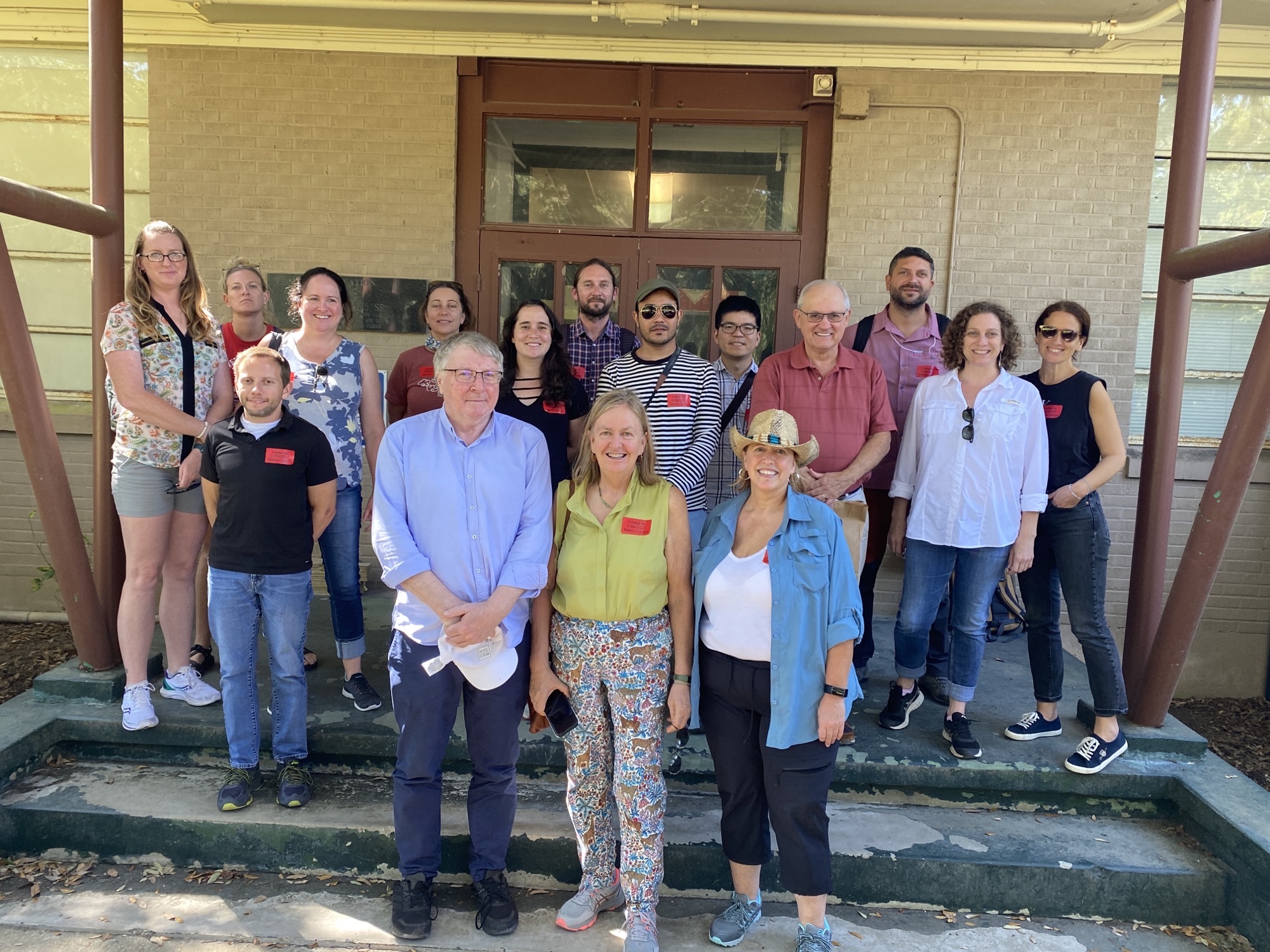
Dr. Ashley Dumas, an associate professor of anthropology at UWA, is an expert on public archeology.
Anthropology professor will share research expertise with colleagues in Poland
Story: Phillip Tutor | Photo: UWA
A mixture of serendipity and archeology, with a pinch of salt on the side, is behind Dr. Ashley Dumas’ recent Fulbright Specialist Award and her upcoming trip to the University of Rzeszow in Poland.
Dumas, associate professor of anthropology at the University of West Alabama, received the award in early October, which will allow her to share expertise with her European counterparts regarding methods of public archeology practiced in the United States.
And, about that pinch of salt?
Seven years ago in Romania, Dumas met Dr. Maciej Debiec at the inaugural International Congress on the Anthropology of Salt. The congress, Dumas explained, is essentially a small group of scholars “who are interested in the role of salt in human society.” Dumas and Debiec, who teaches at the University of Rzeszow, eventually transformed that chance meeting into an international collaboration.
This spring, Debiec flew to the United States and participated in or observed several projects, including a volunteer archeological dig sponsored by the Alabama Archeology Society and a professional contract archeological project.
“He saw how our archeology was practiced in different ways here and was struck by the fact that we do a lot of public-oriented archeology, a lot of public outreach,” Dumas said. “And so he proposed that I come to Poland and speak about this aspect of archaeology, which has not taken root in that part of Europe yet.”

With her Fulbright selection, Dumas will join more than 400 Americans who are chosen “on the basis of academic and professional achievement, demonstrated leadership in their field, and their potential to foster long-term cooperation between institutions in the U.S. and abroad,” according to the U.S. Department of State’s Bureau of Educational and Cultural Affairs.
Debiec believes Polish archeology lags behind the U.S. version because of what he describes as “a limited transfer of knowledge of our research to local communities.” Seeing first-hand how Dumas and her American colleagues incorporate that element into research led to the idea of continuing their international collaboration.
In applying for the Fulbright Specialist Award, the duo structured their application so that Dumas would be added to the program’s specialist directory and Debiec’s university could sponsor the travel expenses, she said. In an effort to reduce costs and boost the application’s chances, Dumas will stay with Debiec and his family in Poland. Her sons, who are students at University Charter School on the UWA campus, are accompanying her with the approval of their school’s administrators.
The trip is scheduled for Nov. 15 through Dec. 19.
“Obviously, I’m interested in pursuing salt research there,” Dumas said, “but my primary purpose is to use my experience in public archeology and provide ideas and inspiration to my colleagues and students there. I want to show how to take what we do as archaeologists and make it more relevant and interesting to the public.”
While in Poland, Dumas will lecture to graduate students about public archeology and its use in the United States and consult with a regional museum about exhibits on local early history salt-production sites. She’ll also work with Debiec on groundwork for hosting the 2024 International Congress on the Anthropology of Salt in Krakow, Poland.
Particularly important for today’s archeologists, Dumas said, is getting landowners and farmers to understand what scientists plan to do on their property. That is vital, given that archeologists often search for items not automatically interesting to laymen, such as pottery shards or centuries-old trash pits.
“The last thing I want to do is interfere with their work,” she said. “So public archeology and public outreach are critically important to archeologists in just their ability to do the field work at all.”
In addition to her Fulbright award and interest in the research of salt’s role in human society, Dumas is heavily involved in the archeological search for the historical Holy Grail of the Battle of Mabila, the Alabama site where Spanish explorer Hernando de Soto defeated Chief Tuskaloosa and his Native American warriors in 1540.
ABOUT FULBRIGHT: The U.S. government considers the Fulbright program the flagship international educational exchange program that it sponsors. The U.S. government-led program, in partnership with more than 160 countries, provides international exchange programs “for passionate and accomplished students, scholars, artists, teachers, and professionals of all backgrounds to study, teach, or pursue important research and professional projects,” per its website. For more information about the program or the U.S. Department of State, please visit http://eca.state.gov/fulbright.